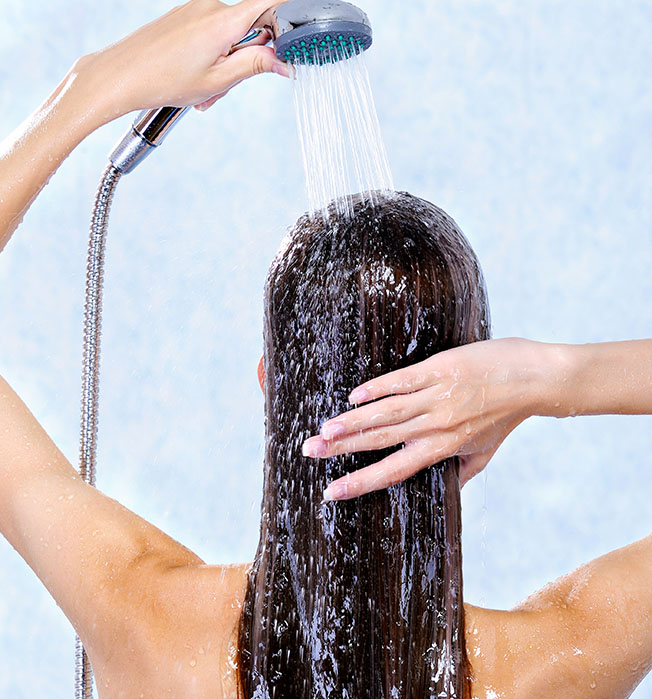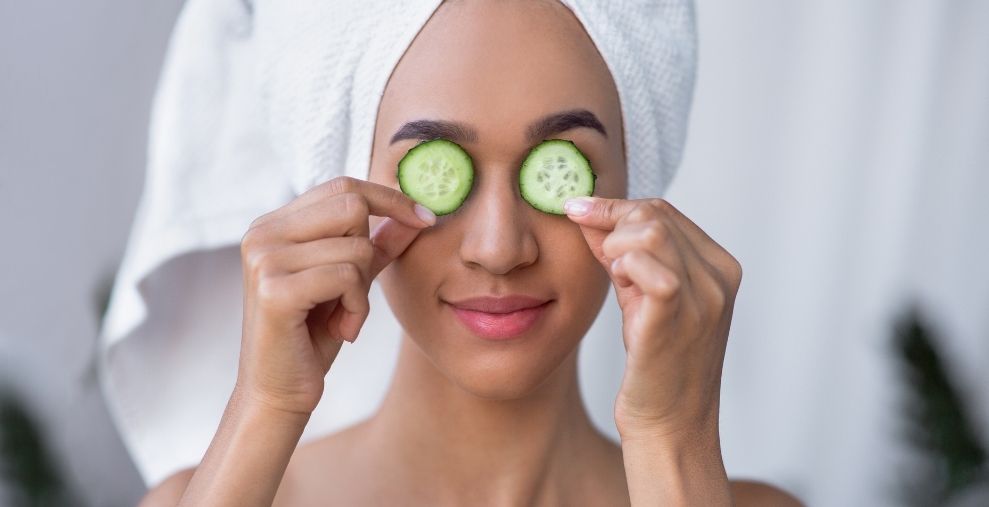Winter is a season of warmth, comfort, and cosiness. It’s time for endless conversations in front of the fireplace. Alternatively, wrap yourself in layers and watch Netflix while sipping a warm cup of hot chocolate! Doesn’t that seem like a dream come true? We can’t say the same about your hair and scalp, though.
The cold temperatures make your hair and scalp itchy, flaky, harsh, dry, and prone to breakage. That’s why you’ll need a different hair care routine in the winter. Don’t be concerned. This winter, we’re here to help you raise your hair game. You can also have a look on ‘Home Remedies To Prevent Hair Fall’. We’ve included winter hair care and skincare suggestions in this article to keep your scalp and hair happy throughout the season. Have a look.
Tips for Hairs:
1. Moisturize Your Scalp With Hair Oil

It’s difficult to keep your hair strong, silky, and shining during the winter. Hairfall, itchy scalp, and dandruff are just a few of the frequent hair issues that come with the winter season. Depending on your preferences, you can use herbal oils, olive oil, almond oil, coconut oil, or mustard oil. All you have to do is massage the oil into your scalp, wait two hours, and then shampoo it out with a gentle shampoo. Oil aids in the preservation of moisture in the scalp and hair. Cover the scalp and hair with a towel drenched in warm water after applying the oil for the best results. This will allow the oil to enter deeper into the hair roots and improve scalp circulation.
2. Hairwashing on a regular basis should be avoided.

Shampooing your hair frequently removes its natural oils, creating more dryness and irritation. Extend the time between washes if possible. Hair should not be shampooed more than twice a week. To maintain the natural moisture balance, always use a sulfate-free, mild shampoo.
3. Use Conditioner after Hair Wash

During the winter, never forget to use the air conditioner. For deep hydration and nourishment, use a thick, creamy conditioner with natural oils like coconut, olive, jojoba, and shea butter.
The Best Way To Use A Conditioner
- Shampoo and rinse your hair well.
- From the mid-lengths to the ends, apply the conditioner.
- To avoid dryness and split ends, concentrate on the ends.
- Allow for a few minutes of conditioning before washing with regular water.
- To lock the moisture and prevent frizz, finish with regular water.
4. Straighteners and Curling irons with high heat should be avoided

Heat straighteners and curling irons are the most commonly used style tools in people’s daily lives. However, many are unaware that these factors have a bad impact on hair. Curling irons and straighteners are notorious for making hair weak, frizzy, and dry. To lessen the detrimental effects, use them in conjunction with a protectant spray on a regular basis.
5. If your hair is wet, don’t go out

Cold air stretches hair shafts, making them more prone to breakage and perhaps fading colour. Before going out in the sun, make sure your hair is completely dry. Allow more time for your hair to air dry, or better yet, adjust your winter hair care routine.
6. Showers that are too hot should be avoided

In the frigid weather, a hot water shower is always appealing. Hot water, on the other hand, can strip your hair of its natural oils and moisture, leaving it dry. It may also cause flakiness and dryness on the scalp. To assist seal the hair cuticles, wash your hair with lukewarm water and then blast it with cold water at the ends.
7. Towels made of Microfiber should be used instead

Towels made of cotton should not be used to dry your hair. Microfiber towels should be used instead. They’re gentle on your hair, have a high water absorption capacity, and assist cut down on friction and drying time. Cotton or any other substance, on the other hand, can make your hair harsh and cause tangles, frizz, and flyaways.
Tips for Skin :
1. Maintain a Regular Skin Care Programme

When the winter season arrives, stick to your standard skincare routine of cleansing, toning, and moisturising. Cleanse the skin twice a day for maximum results. To prevent skin damage, apply moisturiser after washing your hands and face. On get the most out of your moisturiser, apply it to damp skin. Using a humidifier at work and at home to add moisture to the dry air can assist to keep the skin hydrated.
2. Drink plenty of Water

We drink less water in the winter and prefer hot beverages such as tea and coffee. Water helps keep your skin cells moist, which reduces the chance of chapping and peeling. It removes pollutants from the body that, if not well moisturised, might enter the pores and cause blemishes.
3. Face Masks produced at Home

The oil or sebum that keeps moisture on the skin is removed by the cold and dry air of the winter season. Applying DIY face masks is a simple and straightforward way to solve this. Applying DIY skin and face masks is a far better option than using store-bought chemical-laden products. It’s simple to produce and may be made with a variety of ingredients, including jojoba oil, rose water, honey, aloe vera, cucumber, coconut oil, butter, banana, avocado, papaya, orange, and milk. These natural facemasks can assist to maintain normal skin moisture levels and avoid skin problems such as dryness, itching, and dullness.
4. Make use of natural products

Natural products are always good for the skin; use products rich in oils such as sesame oil, castor oil, and almond oil infused with calming herbs such as bala, ashwagandha, shatavari, and tulsi to help your body restore nourishment and treat skin conditions such as lack of tone or lustre, rough patches, chapped and cracked lips, and so on. Mace (javitri), which is high in lignans, and Moringa oil, which is high in essential fatty acids, have unrivalled skin rejuvenating effects
5. Apply Moisturizer

Applying wetness to damp skin helps to seal in the moisture. Damp skin traps water in your surface cells, giving your skin a pleasant “dewy” appearance and preventing evaporation by keeping in moisture for long periods of time.
